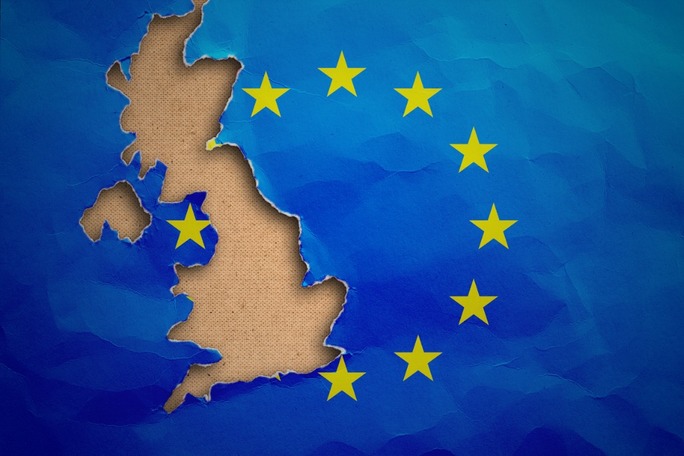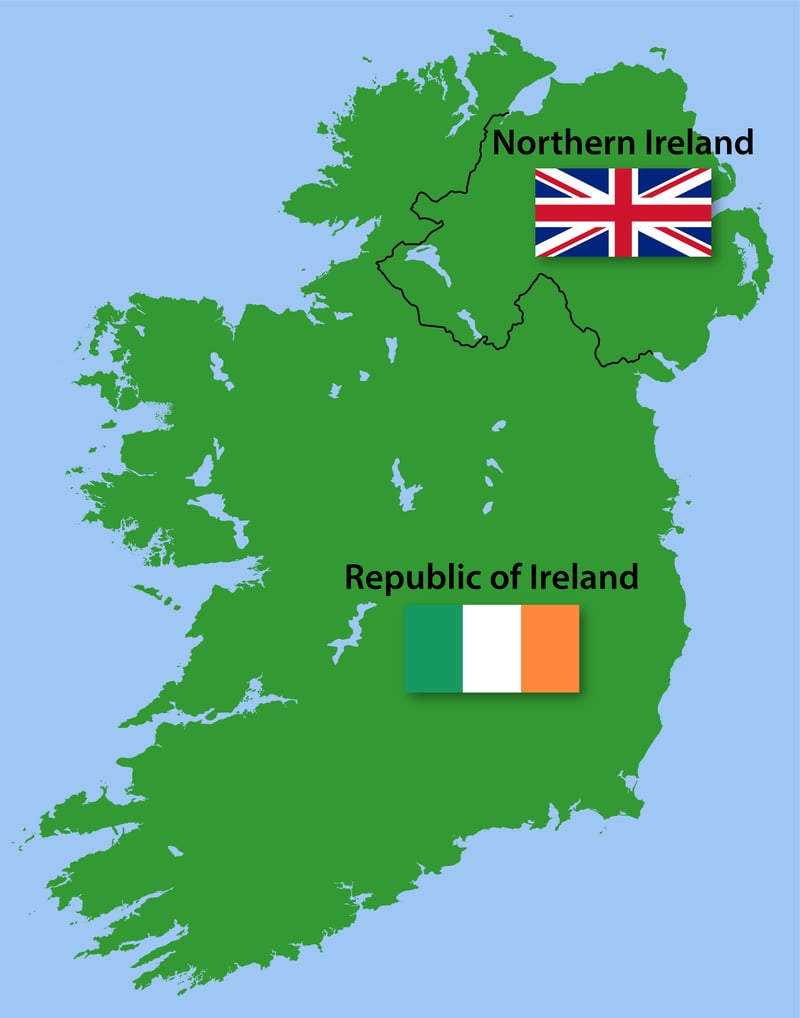Could Brexit End the United Kingdom?
The U.K. is currently engulfed in a quagmire of opinions on how to exit the EU. There seems to be no straightforward solution, and the breakup of the U.K. is an eventual possibility. What’s behind all this?

Now, over 2½ years later, the U.K. continues to be in a quagmire about just how to fulfill the vote and exit the EU. Prime Minister Theresa May and her staff have spent the last two years negotiating a deal with the EU, and she presented her plan to Parliament recently. Some of the details of the plan include:
- Britain’s financial settlement: Britain would pay a “divorce” bill to leave the EU. It is estimated to be around 39 billion pounds (about $49.5 billion), but some have estimated the total bill for the next decade will cost Britain 100 billion pounds ($127 billion).
- Securing rights of citizens: The plan secures the status of EU citizens in the U.K. and U.K. citizens in the EU throughout the transition phase (which is to last until 2020).
- Irish border: The plan maintains a soft border between Ireland and Northern Ireland by maintaining a customs union between the U.K. and EU.
Along with the desire to secure preferential trading terms with the EU, the Irish border is probably the most difficult issue in the Brexit negotiations. To understand why the Irish issue is so complicated and important, we need to look at history.
The Irish border
The Republic of Ireland gained independence from Britain by treaty in 1922. Eventually Northern Ireland became a bloody battleground between the mainly Protestant unionists (the majority, who supported its choice to remain part of the U.K.) and the mostly Catholic nationalists (who desired to reunite with the Republic of Ireland).
The violence that ensued over roughly 30 years, a period known as “the Troubles,” resulted in the deaths of over 3,600 people. Thousands of others were injured, as paramilitary groups on both sides fought and attacked each other, with British military peacekeepers in the middle.
On April 10, 1998, the violence came to an end when the U.K. and the Republic of Ireland signed the Good Friday Agreement, with the backing of local Northern Ireland politicians, both Catholic and Protestant. This has resulted in over 20 years of almost complete peace in Northern Ireland.
The peace agreement allowed Northern Ireland to remain within the U.K. based on the principle of consent (the people of Northern Ireland could decide later to leave the U.K.) and opened the border between the two Irelands, since both were member countries of the EU. This led to a demilitarization of the border, which essentially made the border invisible—allowing free movement of people and goods and providing an environment for peaceful coexistence between unionists and nationalists.
The peace, enjoyed for over 20 years, is now being threatened by conditions the EU plans to impose in the Brexit deal.
With the Republic of Ireland remaining in the EU, the departure of the U.K. puts the open border in jeopardy. The EU customs union requires a hard border between EU states and non-EU states for custom checks and law enforcement to monitor goods and people entering and leaving the EU. The question is, How can the U.K. (and Northern Ireland) leave the EU without creating a hard border between Northern Ireland and the Republic of Ireland?

Neither the U.K. nor the EU wants a hard border between Northern Ireland and the Republic of Ireland. It would enrage Irish nationalists and rekindle hostility and violence between communities in the region.
As such, they have built a “backstop,” an insurance policy, into the withdrawal agreement, guaranteeing no hard border in Ireland in the event no other agreement can be reached.
The EU’s proposed solution to Ireland’s border issue is to move the customs border to the Irish Sea, essentially leaving Northern Ireland fully aligned with the EU’s customs union and under jurisdiction of the European Court of Justice. But this would separate Northern Ireland constitutionally and economically from the rest of the U.K., which is unacceptable to the Democratic Unionist Party (DUP)—the majority party in Northern Ireland that Theresa May relies on to keep her Conservative Party in power in the House of Commons.
The plan Theresa May is promoting has the U.K. remaining in a customs union with the EU after Brexit. This would allow goods and people to still move freely not only between the two Irelands, but between the U.K. and EU states. This plan appeases the DUP by not cutting Northern Ireland off from the U.K., but upsets many Brexit supporters who believe that remaining in the customs union is a betrayal of the Brexit referendum and is unacceptable. As of this writing, Prime Minister May’s plan has still not been voted on by the House of Commons, and many believe that it will be rejected in January.
If the proposed Brexit plan is rejected and no compromise is reached, the U.K. would leave the EU on March 29, 2019, with no deal. This makes the reestablishment of a hard border between Northern Ireland and the Republic of Ireland more likely, though many believe there are other solutions to prevent this.
To some, the political wrangling and controversy is politics as usual. But to really understand Brexit and the predicament the U.K. finds itself in, we must understand Britain’s history and prophetic identity.
Fall of an empire
As we explain thoroughly in our free booklet The United States, Britain & the Commonwealth in Prophecy, the British nation has its roots in the Bible. That booklet traces the promise of physical blessings that passed from Abraham to Isaac, to Jacob, and finally to the two sons of Joseph, Ephraim and Manasseh. In Genesis 48 we read of the transfer of those blessings from Jacob to the two boys.
Jacob asked for Joseph’s sons to be brought to him. Knowingly he placed his right hand on the head of the younger son, Ephraim, giving him the greater blessing (Genesis 48:13-14). Jacob prophesied that Ephraim’s descendants would become a multitude, or group of nations, while descendants of the other brother, Manasseh, would become a single great nation (verse 19). These two brother nations would arise to be two of the greatest powers the world would ever see: Great Britain and the Commonwealth (Ephraim) and the United States of America (Manasseh).
At its height, the British Empire controlled around 25 percent of the world’s land surface and oversaw around a fifth of the world’s population, giving rise to the phrase “the empire on which the sun never sets.”
Today Great Britain has lost its empire and has much less influence, prestige and wealth.
Today Great Britain has lost its empire and has much less influence, prestige and wealth. In fact, it is struggling just to keep the union of England, Wales, Scotland and Northern Ireland together. Brexit has caused deep tensions in the union, with the majority of people living in Scotland and Northern Ireland voting to remain in the EU. The Scottish Nationalist Party (SNP) constantly talks of a second independence referendum on its desire to leave the U.K.
How did a people go from controlling the seas and ruling a quarter of the globe to struggling just to keep its core union from fracturing into pieces—and possibly entering into a deal with the EU that some refer to as a form of captivity?
As the Bible prophesied Britain’s rise, it also shows that it would fall. In the book of Hosea, God sees Ephraim as a people who have lost their ability to judge and discern correctly (Hosea 5:11). It is likened to one who is sick yet does not turn to God, but instead goes to other nations (verse 13). The prophet Hosea points out that Ephraim’s real problem is spiritual—the majority have forgotten and rejected the God of the Bible (verses 4, 7, 11).
God allowed the influence of the British Empire to dissolve into a loosely connected Commonwealth. Soon He may allow the United Kingdom itself to come apart. But in terms of prophetic events, this will be the least of the problems coming upon the British people. Because of their sins, both of the sons of Joseph (the British and Americans) will fall (verses 5-7).
No matter how the present Brexit situation ends, Britain will continue its decline unless the British (and the people of the Commonwealth) wake up and return to God and His laws of morality. To learn more about the laws that—if practiced—could change the course of future events, download our free booklet God’s 10 Commandments: Still Relevant Today.
Date Posted: January 7, 2019

